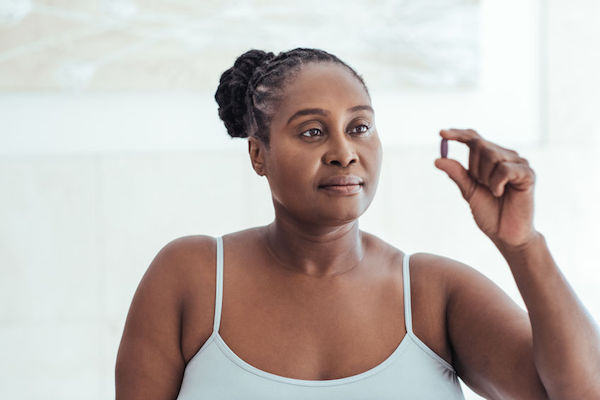Vitamin and mineral supplements can be a useful way of reassuring ourselves that we are getting all the nutrients we need for good health. It’s important to remember, however, that they are an additional, supplementary source of what we should be getting from nutritious foods.

Supplements can’t replicate the complex variety of micronutrients and protective phytochemicals that work together in foods like vegetables and fruits to provide what our bodies need to function optimally and keep healthy, says Dr Neville Wellington, Cape Town GP and managing practitioner at Kenilworth Medicross. But there are arguments that foods may not be as nutritionally rich as they were, say 50 years ago, meaning that supplements can play a greater role in overall health these days.
Nowadays supplements are often taken as added “insurance”, to make sure we’re getting all we need, and there’s little harm in this, provided you stick to the recommended daily allowance (it’s vital to read labels). But some people take mega doses, believing more of a good thing is better – and this is not true, says Wellington.
What happens if you take more vitamins than you need?
If you take more vitamins than you need, you simply excrete the excess of the water-soluble ones (B and C). However, fat-soluble vitamins (A, D, E and K) are stored in your body and accumulate, and high levels can be toxic. For example, too much vitamin A can raise your risk of bone fractures, says Johannesburg dietician Cheryl Meyer.
Too much vitamin E may increase your risk of stroke, and too much vitamin D can cause bone calcification, kidney stones and even deafness over time. Some vitamins and minerals can also be harmful if you have certain medical conditions, or can work against medications, cautions Wellington. For example, if you’re on blood-thinners or facing surgery, vitamin E and omega-3 supplements can increase your risk of bleeding. Always check with your doctor or pharmacist before taking supplements regularly.
Accordnign to national dietary guidelines, you should take supplements if you call into any of the below categories.
Are you pregnant? Take folic acid supplements
To help prevent defects of your baby’s brain and spinal cord, 400mcg a day is recommended for pregnant women, Meyer says.
Are you vegan or vegetarian?
Non-heme iron is found in dried beans, green leafy vegetables nuts, and dried fruit, but is less available to your body than the heme variety in meat, so you need twice as much. For this reason, many doctors advise a supplement of 18mg a day, especially for vegetarians who are also athletes and female, says Wellington. (Doses will depend on the quality of your vegetarian diet.)
Zinc Occurs in legumes, soya, nuts and seeds and isn’t stored in the body, so you need it daily: a supplement of 10mg for men and 8mg for women is advised.
Vitamin B12 If you don’t eat meat, fish, eggs or dairy (its prime sources), you will need a supplement of 10mg a day.
Calcium and riboflavin These are found in dark-green leafy vegetables, tofu, nuts and soya, but large quantities are needed to get the equivalent found in dairy products, and a 1 300mg supplement can do the trick.
Do you consume under 1 600 calories a day or live on fast food?
If you aren’t eating as you should, a multivitamin a day can help ensure you get your daily requirements, says Wellington. “Choose a reputable brand that doesn’t exceed the RDA of each vitamin and mineral,” he advises. “Avoid single nutrient supplements to ensure you aren’t exceeding safe doses of their nutrients, unless you have a specific need or deficiency that’s been confirmed by your doctor or dietitian.”
Are you over 50?
Metabolism slows down as you age and your rate of bone loss increases, especially for women, raising the risk of osteoporosis.
Calcium This is available in dairy products, fish with bones (such as sardines) broccoli and fortified cereals and juices, but both men and women need 1300 mg daily, and a supplement can help ensure this, Meyer says.
Vitamin D This is vital for calcium absorption, and with age your ability to synthesise it in sunlight through your skin lessens, so a supplement of 600IU (15mcg) daily is advisable.
Vitamin B12 You need this to prevent loss of memory and cognitive function, but you tend to make less stomach acid as you age, so you absorb less of the B12 in meat, fish, eggs and milk. The US Institute of Medicine advises that over-50s take 2.4mg daily.
B12 can also be depleted if you have type 2 diabetes and take metformin (a glucose-lowering drug), so this should be checked annually, and supplemented if necessary, says Wellington.
IMAGE CREDIT: 123rf.com

